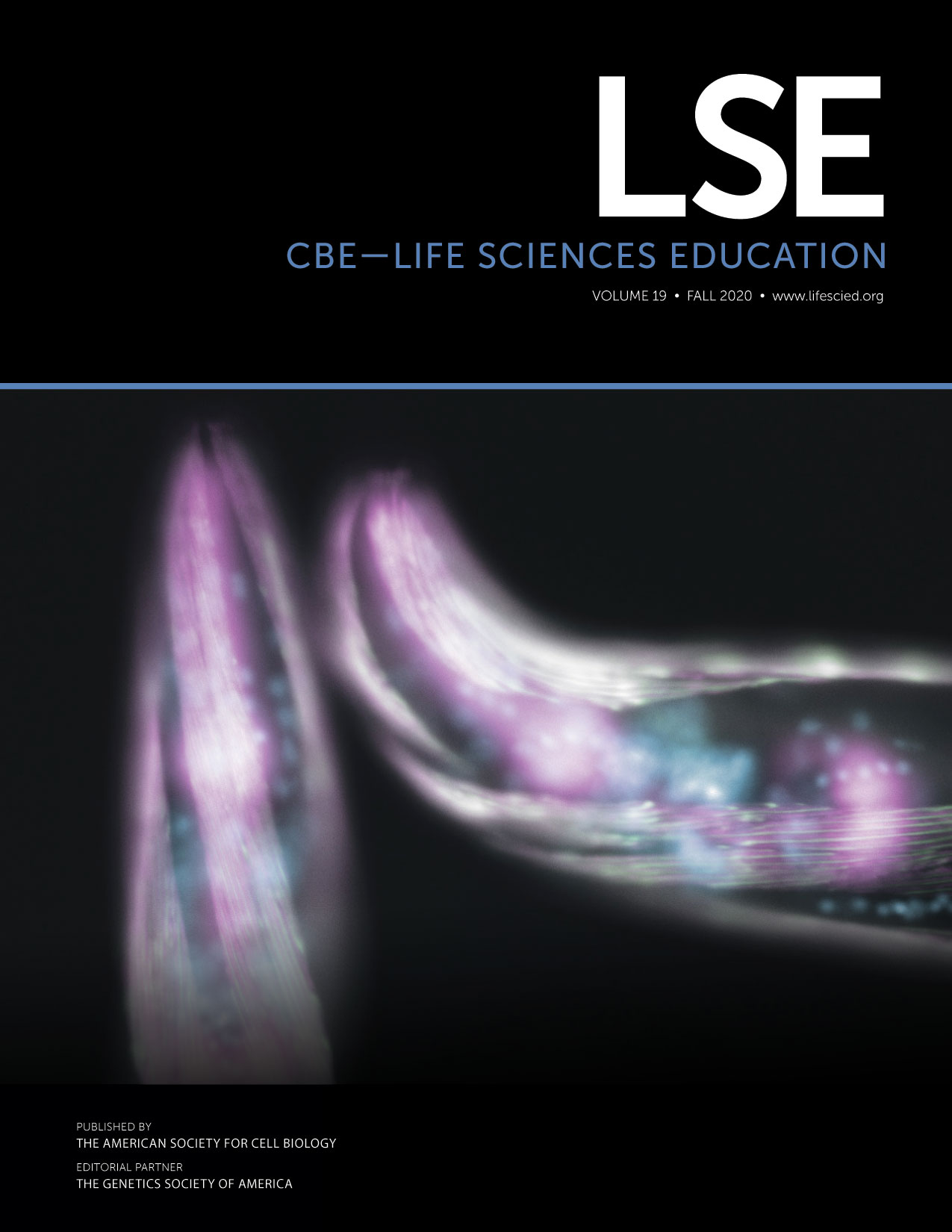Value of Case-Based Learning within STEM Courses: Is It the Method or Is It the Student?
Abstract
Undergraduate attrition from science, technology, engineering, and mathematics is well documented and generally intensifies during intermediate years of college. Many contributing factors exist; however, a mismatch between timing of certain pedagogical approaches, such as case-based learning, and the level of students’ cognitive abilities plays a crucial role. Using cognitive load theory as a foundation, we examined relationships between case-based learning versus a traditional lecture and learning gains of undergraduates within an intermediate physiology course. We hypothesized instruction via a case study would provide greater learning benefits over a traditional lecture, with gains possibly tempered by student characteristics like academic preparation, as measured by ACT scores, and academic age, as measured by credit hours completed. Results were surprising. Case-based learning did not guarantee improved learning gains compared with a traditional lecture for all equally. Students with lower ACT scores or fewer credit hours completed had lower learning gains with a case study compared with a traditional lecture. As suggested by cognitive load theory, the amount of extraneous load potentially presented by case-based learning might overwhelm the cognitive abilities of inexperienced students.



